by Si Jakeman
I’m no one special, just had a moment of Interconnection which set me on this path of Deep Sustainbility. I am a happily married dad of three children, going to hit the Big 40 next year. I’ve worked and played outside all my life. I was a keen scout, I ran cross country for the county and always loved nature. Then from working in a zoo/theme park, I finally found myself as a Surrey then London Firefighter,of 16 years. Trying to inspire communities to grow their own food through my Great BiG Earth DiG Project and reconnect them to Mother Earth. Here I explore what ‘sustainability’ means to me…
What Does Sustainability mean to me?
How do I apply it?
A very good question?
The official meaning of Sustainability is derived from the Latin sustinere (tenere, to hold ; sus, up). In the dictionary it means maintain, support or endure. Sustainability really should be seen as human‘s ability to survive on Planet Earth, it should mean that our available resources are used to meet the needs not greeds of the present population without compromising the ability of future generations to meet their own needs. There are officially three dimensions to Sustainability; Economic, Social and Environmental. On a personal level I feel that we have been in a period of disconnection to nature. We have been grabbing every available resource on a mass scale for far too long. We are using nature’s capital, it doesn’t have time to regenerate.
While our lives seem on the surface to be much better, longer life expectancy and good health, we have long past the benefits. People still don’t seem to be happy. We strive for more and more materialistic items to prop up our lives. We seem to work harder and longer for more consumer goods, we don’t need at all. What are we teaching our children? The trouble is our whole economic system is built on the ability for growth. We are encouraged always to spend more, and thus an ever increasing ability to use more and more natural resources. How can this be sustainable in a finite world? We are locked into an Economy that will forever ravage the land, our continued use and search for oil will eventually destroy everything. The trouble is the oil supplies are now increasingly hard to find, we are going to more remote areas, including the Artic and deep into the ocean floor. We have already past the point where it’s a non viable resource. It costs so much to drill and transport. The benefits have also long gone. Our whole system is trapped in this model. Business and Politicians can’t escape from this scenario as they are at the top of this pyramid. All of our economies are built on the ability to lend money, with natural resources as guarantors. It has become out of control. How can £1 be lent so much that it can generate a further £9 out of thin air?
Now you are probably thinking what can I do to stop this? Well, I truly believe it’s not going to come from the top down.
If you think of The Economy as a tree, the establishment is always going on about its growth. For years economies have been consuming all the fruit, no seeds have been replanted. The trees are becoming old and each year less fruit appears. Now to keep the economy going a few branches have been cut off to keep the fire lit. But each year more and more branches have been utilised. We are now left with a few lacklustre ones, which are affected by the weather. The fruit that does grow falls off in the wind and rots. The trees are starting to die as they don’t have the ability to convert the Sun’s energy. So we’ve now started to chop bits off the trunks to keep the fires burning. The animals, birds and bees have now moved on to the new areas due to lack of food. The tree is on its last hope. The roots are still intact, and if the tree was left alone new shoots will still have chance to emerge. But it needs time to re-grow, and when it does the branches will return and in time fruit may appear. The animals, birds and bees will hopefully return.
This is exactly what happened to Easter Island in the Pacific Ocean. The whole island is barren, the trees have gone and there is no wildlife left. The whole civilisation disappeared due to the over use of the island’s resources. The civilisation collapsed, it became unsustainable. The only thing left are the huge monuments of faces. If we continue as we are, this is what our cities will become, huge crumbling monuments.
Chief Seattle, a Native American Tribe leader in the 1860’s, wrote about how western values were destroying the land. He foretold the situation we find ourselves today. I will adapt some of it for today’s point of view.
How can you buy or sell the clouds, the warmth of the land? The idea is strange to me. If we do not own the freshness of the air and the sparkle of the water, how can you sell them? Every part of the Earth is scared to me, Every shining pine needle, every sandy shore, every mist in the dark woods, every clear and humming insect. The sap which courses through the trees carries the memory and experience of our ancestors. The sap which courses through the tree carries the memories of people connected to the land. City dwellers forget when they go to walk among the stars. We should never forget this beautiful Earth, for it is the Mother of all of us. We are part of the Earth and it is part of us. The perfumed flowers are our sisters, the deer, the horse, the great eagle these are our brothers. The rocky crests, the juices in the meadows, the body heat of the pony, and the man, all belong to the same family.
The shining water that moves in streams and rivers is not just water but the life blood of our ancestors. If we ransack land, you must remember that it is sacred blood of our ancestors. It must be taught to our children that it is sacred and that each ghostly reflection in the clear water of lakes tells a story. The waters mumur is the voice of Father’s Fathers. The rivers sustain us. Our children need to be taught that we are part of them, and should be given kindness as a family relative. We do not understand this connection any more. We take from the land what ever we want. The Earth is no longer seen as part of us, we move on. We kidnap the Earth from our children, and we do not care.
There are no quiet places in our lives. No place to hear the unfurling of leaves in Spring, or the rustle of an insect’s wings. The clatter only seems to insult our ears. And what is there to life if a man cannot hear the lonely cry of a fox or arguments of the frogs around a pond at night. Why don’t we prefer the soft sound of the wind darting over the face of the pond, and the smell of wind itself, cleansed by a midday rain, or a scented with pine.
We must teach our children to unplug and reconnect to nature, that the ground beneath their feet are, the ashes of our ancestors. So that they will respect the land, that the Earth is our mother. Whatever befalls the Earth befalls the sons of the Earth. If men spit upon the ground, they spit upon themselves. This we know, the Earth does not belong to man, man belongs to the Earth. This we know. All things are interconnected like the blood which unites one family. All things are interconnected. Man did not weave the web of life, he is merely a strand in it. Whatever he does to the web he does to himself.
The air is precious to all of us, for all things share the same breath, the beast, the tree, the man they all share the same breath. We do not seem to notice the air we breathe. We must remember that the air is precious to us, that the air shares its spirit with all the life supports. The wind that gave our grandfather his first breath also receives his last. We need a place we can go to taste the wind that is sweetened by the meadow’s flowers.
What is man without the beasts? If all the beasts were gone, man would die from a great loneliness of the spirit, for whatever happens to the beasts, soon happens to man. All things are interconnected.
After reading this I hope you realise how disconnected we have become. We need to find a way to reconnect to Mother Earth. The way I found this connection was on one Spring morning I had a sudden realisation out of the blue. The bees buzzing, birds singing, squirrels chasing, butterflies dancing, trees about to burst into bud, flowers appearing from their winter slumber and clouds rushing across the sky, I realised it was all Interconnected. I didn’t know at the time but this was my moment of connection to deep ecology. It sent a shiver of happiness up my spine. I had always loved the outdoors, my Grandfather taught us about growing vegetables, my Father taught us the names of birds and butterflies and the constellations and my Godfather’s family owned a farm. I was a split second of all my thoughts coming together, it was One moment of Interconnectedness. I just knew from then on I had to encourage others to reconnect, to become more sustainable to protect Mother Earth. My passion was lit.
Since then I have tried to apply this knowledge to the real world. To make the changes to change my world and make it as sustainable as I can. I just have deep inner knowing we need to change our lifestyles. In a way, I’m slowly walking away from materialism and consumerism, it just looks like greed. I just don’t get it anymore. I try and walk or cycle everywhere, don’t use plastic bags, recycle and reuse as much as I can. I have even enrolled onto an Environmental studies degree so I can understand all the factors.
I decided to grow my own food. One conversation with a couple of neighbours brought about getting an allotment plot between us. I realised that the best way to become more sustainable was to grow locally produced food. I always wanted to find a way to get my children back outside and amongst nature, and thought this was the ideal way. It seems to have worked, they know how food grows and can identify many species of wildlife.
I truly believe the next generation will only protect their planet if they feel and know that they are part of it and not separate. The Great Big Earth Dig Project was born and the idea of digging for sustainability was the tag line. A modern twist on Dig for Victory. The idea then filtered to work, inspired by Todmordern a small village where crops are grown in all manner of places. Schools, police station, train stations etc. I thought if they can do it, why not here in the outskirts of London? I managed to get permission to grow fruit and veg’ on a disused flat roof at our fire station. We are growing strawberries, figs, spuds, cabbage, beans, leeks, cauliflower, toms and squash. It was a way to become more sustainable at work too. We eventually won London Fire Brigades greenest fire station. This was also achieved by turning off lights, recycling etc. We also had a cycle rack fitted to encourage colleagues to cycle to work. The other fire-fighters have never been pushed or preached to. I have just tried to do things by example. It is encouraging to hear many have started growing their own food at home for the first time or gone back to it.
A great deal of connections have also been found on Twitter with many great like-minded people out there. If others can be inspired to do just a little bit for the planet, things may slowly change from the roots up?
I’ve also planted some flowers at the front of the fire station. Many commuters walk past the front, to a very busy mainline suburban train station into London. If it just brightens up one commuter’s day it’s worthwhile. They may go home and start growing their own? Who knows if we could all do a small bit where it may lead? I’m forever looking for the tipping point to get more people involved in sustainability. It only takes one acorn to grow a forest. We all need to become more connected to our environment that sustains us and listen to the wise words of Chief Seattle. Businesses are slowly coming on board with sustainability, but do they truly understand why they need to? Or are they only using it as green wash? Does a new level of Sustainability need to emerge, one of DEEP SUSTAINABILITY?
We need to realise the Interconnectedness of the world’s life systems, the seas, the trees, the bees. Our economies need to be built sustainably around these. We need to teach our children that consumerism will never lead them to true happiness. They need to learn to protect Mother Earth as we all do. My advice is to start growing your own food and inspire others to reconnect to the land. This is what sustainability means to me, and it is from the heart. I hope it inspires you to get into action. It’s just one opinion from a little seed in the wilderness. But as my Auntie used to say when the going get’s tough, the tough get going!












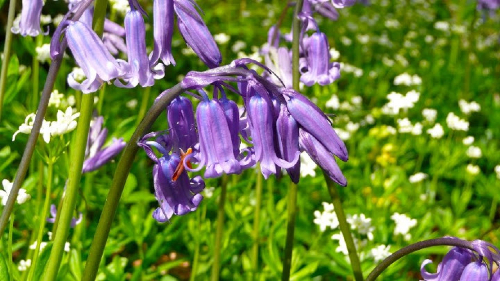
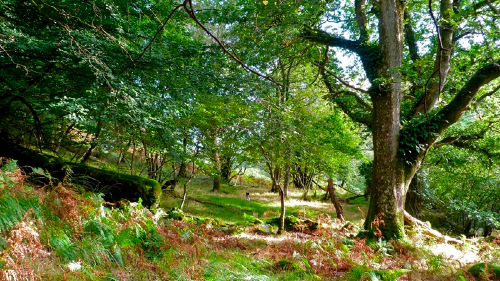
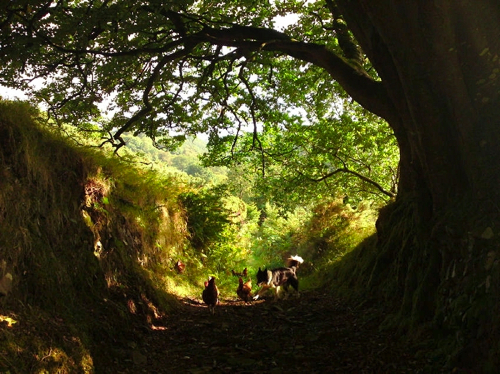
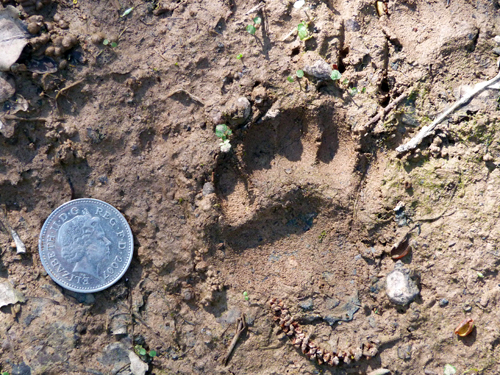
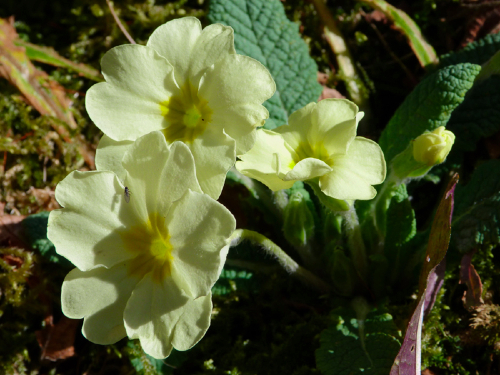
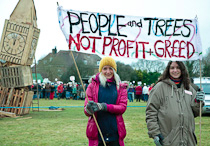

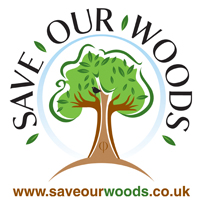
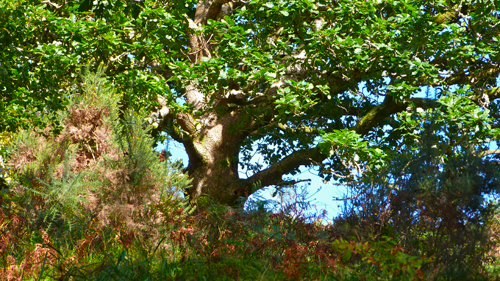
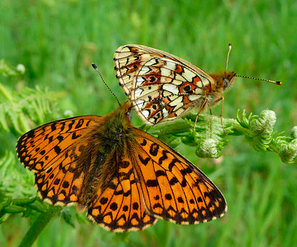
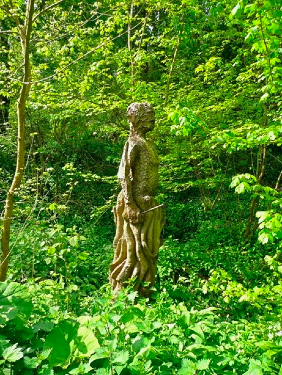
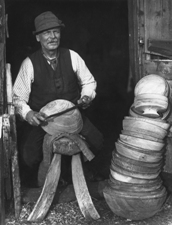



Hey, I love your ideas and I love the work you did at your work. Just wanted to say that, I wish were there more people like you. Sustainability is for idealists and I think it’s great.
x
{ 1 trackback }